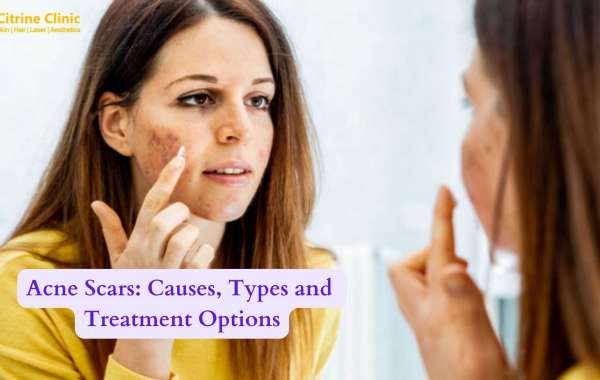One is not alone if he/she has acne scars; it's estimated that up to 95% of acne sufferers have scarring of some kind. Fortunately, there are numerous treatments that can be used to help fade acne scars.
This blog is created from references taken from Dr. Niti Gaur, who provides effective acne scar treatment in Gurgaon. This blog will list the lasers used to treat acne scars. But before we get into the treatments, it's essential to understand the causes and types of acne scars.
Causes of Acne Scars
Acne scars are caused by skin inflammation, which can be triggered by a variety of factors, some of which are listed below:
- Picking at Acne: Popping or picking at pimples can cause skin trauma and increase the likelihood of scarring.
- Genetics: Acne scarring is more common in some people than others due to genetic factors.
- Delay in Treatment: The more prolonged acne is left untreated, the more likely scarring will occur.
- Hormonal Imbalances: Hormonal imbalances, such as those experienced during pregnancy or menopause, can increase the likelihood of acne breakouts and subsequent scarring.
- Medications: Certain medications, such as corticosteroids and some acne treatments, can increase the risk of skin damage and scarring.
Types of Acne Scars
There are several types of acne scars, each with its own distinct features:
- Ice Pick Scars: They are deep, narrow scars that appear to be small holes in the skin.
- Boxcar Scars: They are broad, shallow depressions with sharp, defined edges.
- Rolling Scars: They are broad, shallow depressions with a gentle incline that give the skin a wavy appearance.
- Hypertrophic Scars: The body overproduces collagen during the healing process, resulting in the formation of these raised, thick scars.
Top Treatments for Acne Scars
- Subcision
The procedure uses a special hypodermic needle to make precise subcuticular cuts under the skin, targeting acne scars. By separating the fibrous threads attaching the scars to the tissue beneath, this technique removes both the scars and the connective tissue that forms during wound healing.
- Chemical Peel
Chemical peels utilize acids or special chemicals to exfoliate the skin, removing damaged layers and unveiling smoother, youthful skin with reduced scars. They vary in potency and penetration: mild, medium, and deep. Common peels include glycolic, salicylic, resorcinol, Jessner's solution, and trichloroacetic acid, often used for acne scar treatment.
- Dermal Fillers
Depressed acne scars can be filled with safe fillers like hyaluronic acid, autologous fat, or collagen-stimulating options. Most fillers offer temporary results (6-18 months), some are semi-permanent, and a few are permanent. Treatment may need repetition based on filler choice.
- Laser Skin Resurfacing
Thermal energy from lasers (ablative or non-ablative) is used to treat scarred collagen beneath the skin, promoting new, healthy skin and increased collagen production. This healing response reduces the appearance of raised acne scars.
Conclusion
Acne scars can be aggravating and challenging to manage, but there are numerous treatment options available to help reduce their visibility. If one has acne scars, consult a doctor about the best treatment option for them. With the proper treatment, one can regain confidence and restore their skin's smooth, healthy appearance. To learn more about the treatment, one can get in touch with Dr. Niti Gaur, the best skin specialist in Gurgaon, today.










